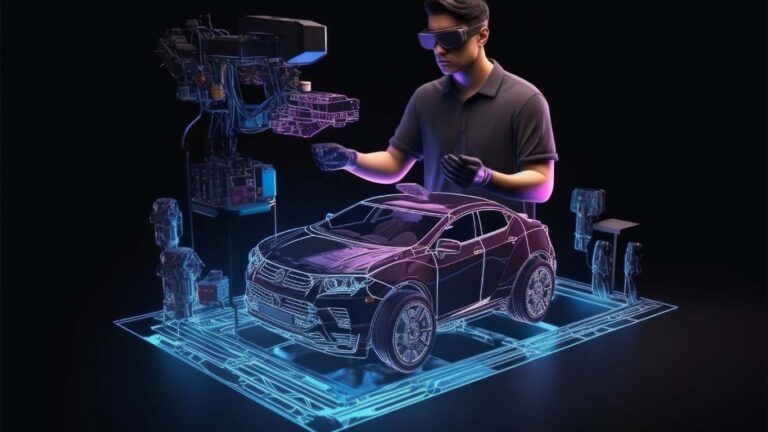
The automotive industry is undergoing a seismic transformation. With rapid advancements in technology, shifting consumer preferences, and a global push toward sustainability, the vehicles of tomorrow promise to be vastly different from those of today. Here, we explore the top trends that are revolutionizing the automotive landscape and shaping the future of mobility.
1. Electrification
Electric vehicles (EVs) are no longer a niche product. Governments worldwide are enacting policies to reduce carbon emissions, and automakers are responding with ambitious plans to transition their fleets to electric. By 2030, it is expected that EVs will account for a significant portion of global vehicle sales.
Advancements in battery technology are driving this shift. Solid-state batteries, with their superior energy density and faster charging times, are poised to replace traditional lithium-ion batteries. Additionally, the expansion of EV charging infrastructure is making electric cars more practical and accessible for everyday drivers.
2. Autonomous Driving
Self-driving cars, once the stuff of science fiction, are becoming a reality. Companies like Tesla, Waymo, and GM’s Cruise are leading the charge in developing autonomous vehicle technology. From advanced driver-assistance systems (ADAS) to fully autonomous Level 5 capabilities, the potential for safer, more efficient roads is immense.
Autonomous vehicles (AVs) promise to reduce traffic accidents caused by human error, optimize traffic flow, and revolutionize industries like logistics and public transportation. While regulatory and ethical challenges remain, the progress in artificial intelligence and sensor technologies continues to drive this trend forward.
3. Connectivity
Cars are becoming smarter and more connected than ever. Internet of Things (IoT) integration enables vehicles to communicate with each other, infrastructure, and the cloud. This connectivity enhances navigation, safety, and overall driving experience.
Features like over-the-air software updates, real-time traffic data, and predictive maintenance alerts are becoming standard. In the future, connected vehicles will play a key role in smart cities, seamlessly integrating with urban infrastructure to improve mobility and reduce congestion.
4. Shared Mobility
The concept of car ownership is being redefined. With the rise of ride-sharing and car-sharing services, many consumers are opting for “mobility as a service” (MaaS) instead of owning a vehicle. Companies like Uber, Lyft, and Zipcar are spearheading this shift.
Shared mobility reduces the number of vehicles on the road, decreases traffic congestion, and promotes sustainable urban development. As autonomous vehicles become mainstream, shared fleets could further disrupt traditional car ownership models.
5. Sustainability and Green Materials
Sustainability is at the forefront of automotive innovation. Automakers are prioritizing eco-friendly manufacturing processes and materials. From using recycled plastics to developing biodegradable components, the industry is reducing its environmental footprint.
Moreover, hydrogen fuel cell technology is gaining traction as a complementary alternative to battery-electric vehicles. Hydrogen-powered cars emit only water vapor, making them a promising solution for long-range and heavy-duty applications.
Conclusion
The automotive industry stands on the brink of a revolution. Electrification, autonomy, connectivity, shared mobility, and sustainability are not just trends; they represent a fundamental shift in how we think about transportation. As these technologies converge, the future of mobility promises to be safer, greener, and more efficient than ever before. The revolution on wheels has just begun, and it’s an exciting journey ahead.
Share this content:







